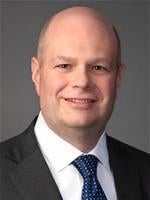In remarks before the Consumer Federation of America's 34th Annual Financial Services Conference, Acting OCC Comptroller Michael Hsu identified changes to banks' overdraft programs that would benefit lower-income individuals.
Mr. Hsu explained that bank overdraft fees were initially introduced as a way to maintain profit levels for banks when interest rates were falling, and were intended only for very limited use. Since then, both banks and consumers have become increasingly reliant on overdrafts - banks relying on the fees they generate ($15.5 billion in 2019) and consumers, mostly with lower incomes or little to no credit, using them as a short-term borrowing method that increases their liquidity. Mr. Hsu stated that banking overdraft fees are disproportionately charged to lower-income persons.
Mr. Hsu asserted that the regulators' goal should be to improve people's "financial health." He argued that overdraft reform holds the promise of achieving that goal. Mr. Hsu stated that such overdraft reform efforts might include:
-
requiring a one-time "opt-in" to the overdraft program;
-
providing a grace period before charging an overdraft fee;
-
allowing negative balances without triggering overdraft fees;
-
offering consumers balance-related alerts;
-
providing consumers with access to real-time balance information;
-
linking a customer's checking account to another account for overdraft protection;
-
collecting overdraft fees from a consumer's next deposit only after other items have been posted or cleared; and
-
not charging separate overdraft fees for multiple transactions in a single day or additional fees when a transaction is re-presented.
Commentary
Acting Comptroller Hsu's speech on overdrafts follows the recent announcement from the CFPB on overdrafts. While the timing could be a coincidence, that seems unlikely. The speech and the CFPB announcement together appear to indicate a coordinated effort by the CFPB and the OCC to address what they view as excessive overdraft fees.




 />i
/>i

